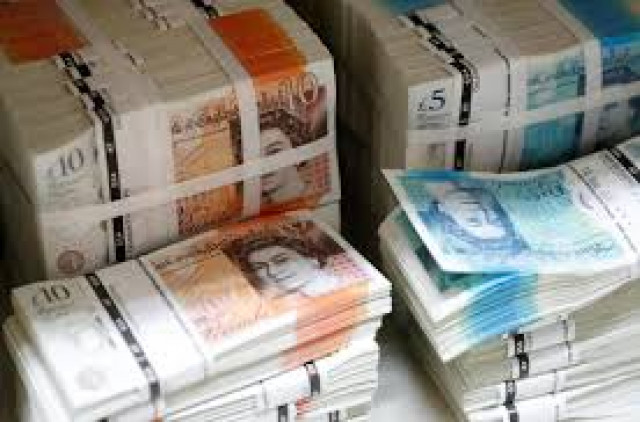Pound slides to three-year low as no-deal Brexit battle begins
PM Johnson's ultimatum sends investors scrambling to dump British assets

PM Johnson's ultimatum sends investors scrambling to dump British assets. PHOTO:REUTERS
The pound, which has now lost 20% of its value since Britain voted to leave the European Union in 2016, fell to as low as $1.196, down nearly 1% on the day.
Barring an October 2016 'flash crash' when sterling momentarily tanked to as low as $1.15, the British currency has not regularly traded at these levels since 1985. The battle over Brexit is reaching a crescendo this week.
Johnson on Monday implicitly warned lawmakers he would seek an election if they tied his hands on Brexit, ruling out even countenancing a further delay to Britain's departure from the European Union, its largest trading partner.
Lawmakers will vote on Tuesday on the first stage of their plan to block Johnson from pursuing a no-deal Brexit ahead of the October 31 deadline.
Investors are panicking that Britain will either crash out of the bloc on October 31 without a transitional deal to ease the divorce, or face a parliamentary election that sows uncertainty at a time when the economy is struggling with a global slowdown exacerbated by a trade war between Washington and Beijing.
Banks raised their estimates for the likelihood of a no-deal Brexit.
UK domestic-focused stocks such as house builders skidded lower as concerns about a hit to the British economy grew.
"The next 48 hours are potentially quite significant, and sterling shows you that," said Aberdeen Standard Investments Global Strategy Head Andrew Milligan.
"The next 48 hours will determine whether or not this high risk strategy from the prime minister has paid off, or whether or not he has been corralled into a corner, or conversely still there are several options where we are simply going for the uncertainty of an election in mid-October.
Milligan said sterling on a fair value basis looked undervalued after much of the uncertainty had been priced in, but he added "as we see with many currencies in extreme circumstances, it is very easy for a currency to hit an air pocket.
"Against the euro, the pound's decline was much more contained on Tuesday, falling 0.2% to a two-week low of 91.33 pence."
"We expected the pound to weaken further against the euro and beyond a three-year low of 93 pence touched in August," said Nordea Senior Currency Analyst Morten Lund.
"It's difficult not to see a route where this doesn't end in an election," he said.
Volatility gauges for the pound jumped as investors braced for more wild swings in the weeks and months ahead.



















COMMENTS
Comments are moderated and generally will be posted if they are on-topic and not abusive.
For more information, please see our Comments FAQ